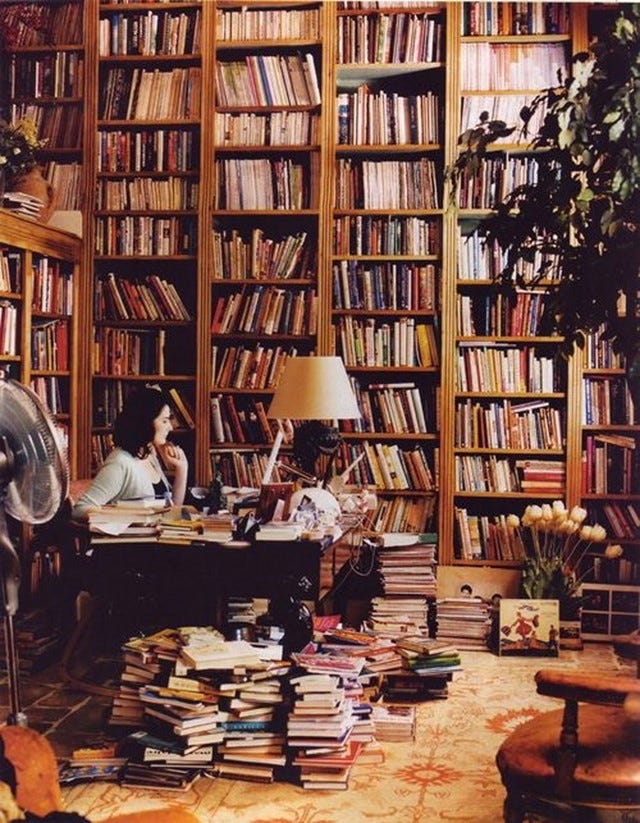Paying subscribers can hear me read this newsletter aloud here or on any podcast app.
The next In Writing Creative Hour will be at 5pm UK time on Sunday 24th September. Here’s a timezone converter in case you’re joining us from elsewhere. I really love these sessions (find out what they involve here). I’m touched that everyone brings a supportive approach to it, and we get to hear about some brilliant projects, large and small, being done around the world, which I find very inspiring. I hope you’ll join us if you haven’t already.
I’m on the judging panel this year for the Nero Book Awards. It’s the first ever Nero Book Awards, and it’s also my first experience of professionally judging books – although of course I’ve been judging all kinds of things as a hobby for years, either silently or among friends.
I can’t say much about it at this point, except that I’m on the panel for the Debut Fiction Award, and it’s been very heartening (and slightly intimidating) to learn just how many good new writers have been published this year. The standard has been higher than I expected – it isn’t (so far) a matter of one obvious winner, because so many of the novels are great. Of course, as a panel we will figure this out. But really, there’s a lot of good writing out there, and if you’ve published novels that have not won awards, just remember that the number of great books definitely outstrips the number of available prizes, and that a particular committee’s opinion is not the definitive truth.
The other wonderful thing about doing this is that the more I read, the more I feel my writing instincts sharpening. I can see and understand the work behind the words – what the writer is doing, or trying to do – a lot more clearly than I could have ten or twenty years ago, and that’s useful for my own work.
Several people I’ve interviewed over the years have stressed that a good writer needs to read a lot. Here’s what my friend Craig Taylor, author of Londoners and New Yorkers said about it:
Be constantly reading. I think one of the most depressing things about working as an editor is you see just how many people out there want to express themselves and be seen and write, but they don't really want to read.
How can you tell?
It just shines through, you can sense it. And there has to be a real promiscuity with reading too – to read all over the place is so necessary, so that you’re not just reading the books that are being published right now, books that have been well reviewed, but you’re going back in time, you’re switching gender, you’re going as far as you possibly can with your reading. I think that’s one of the most important things out there.
(Taken from this interview.)
And here’s the poet Wendy Cope, illustrating the difference it makes:
I’ve got [some of my] early poems, and what I can see now is that some of them read like poor imitations of Sylvia Plath, and some of them read like poor imitations of TS Eliot, but I didn’t realise it at the time. But actually, that’s a perfectly respectable journey, because it shows at least I was reading.
I remember the first time I judged the National Poetry Competition, some of the better poems were imitations of Seamus Heaney. Now, they weren’t going to win any prizes, but you thought those people might well get somewhere. If they got to the point of imitating Seamus Heaney, then they might work their way through to their own voice, and they would’ve learnt a lot. The bad ones, the really bad ones, were people who didn’t appear to have ever read anything.
(Taken from this interview.)
As I’m reading a lot of new fiction this year – and because of my job, have spent several years mainly reading new titles – I’ve decided that 2024 is going to be my year of reading classics.
I’m defining classics extremely loosely, to encompass anything that hasn’t been actively promoted in the last few years while I’ve been working in the literary world. It will include some of the old famous ones that I am embarrassed not to have read, like In Cold Blood or Crime and Punishment or To The Lighthouse or Tess of the D’Urbervilles, but also more recent books that have been sitting on my shelves gazing at me seductively for years, which I know I will love, but I’ve never read them because I’ve always got something more urgent to look at for work. These would include A Visit from the Goon Squad and American Wife.
If you’ve got a favourite novel that is at least five years old, or indeed a bona fide classic, do share and maybe I’ll add it to my list. Equally, if there’s a classic that you are embarrassed not to have read (To Kill a Mockingbird? Pride and Prejudice?), this is a safe space. Confess.
If you enjoy these sporadic but heartfelt newsletters (which will get more regular again once I’ve handed in my own book), please help me out by sharing them with someone else who might. (If you don’t enjoy them, I can only apologise.)
Good luck with your writing this week!





Hattie - two must reads from me are The Driver's Seat by Muriel Spark and Cassandra At The Wedding by Dorothy Baker.
I love 2024 your year of reading classics! I love Cold Comfort Farm, and Persuasion might be my favourite Jane Austen right now! And I only made it through Crime and Punishment because Jessie said I "wouldn't get it" - very useful to get someone to goad you into reading unappealing books! She was right, I didn't get it. :(